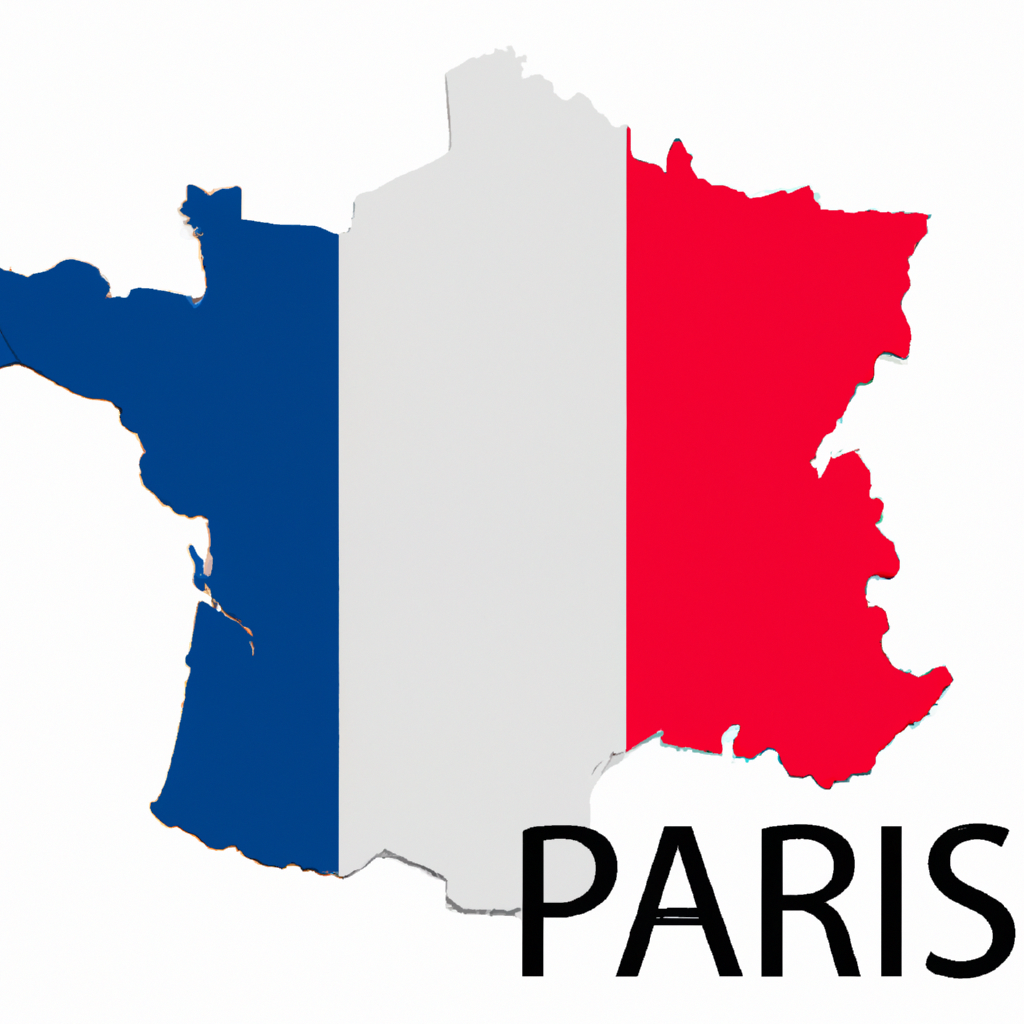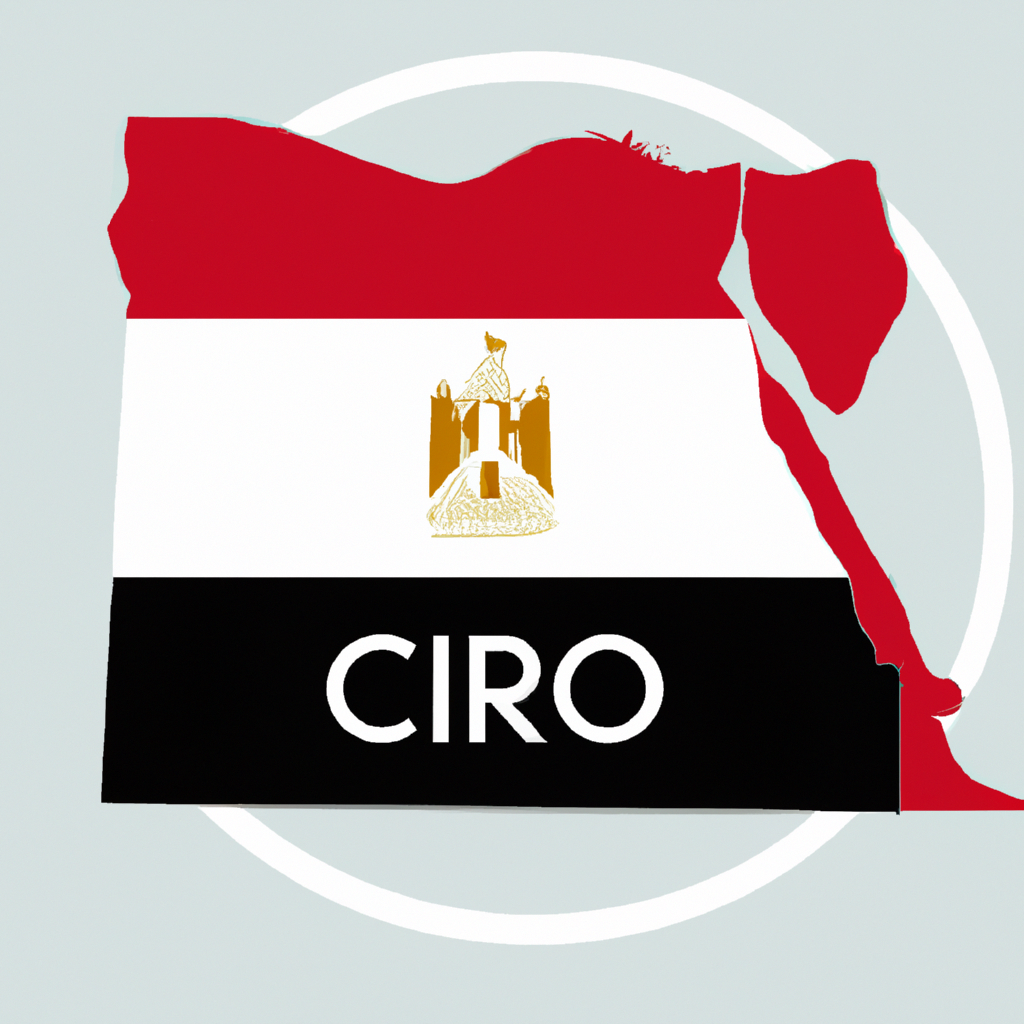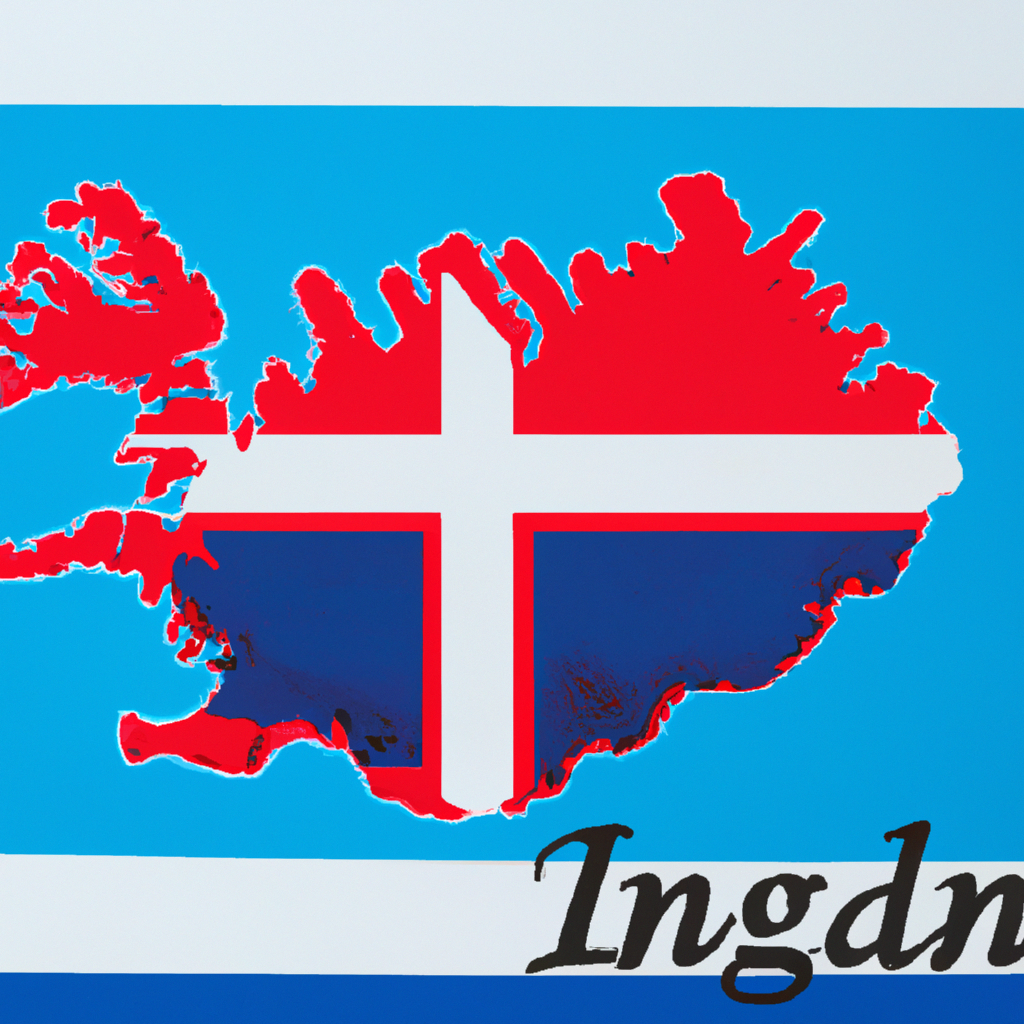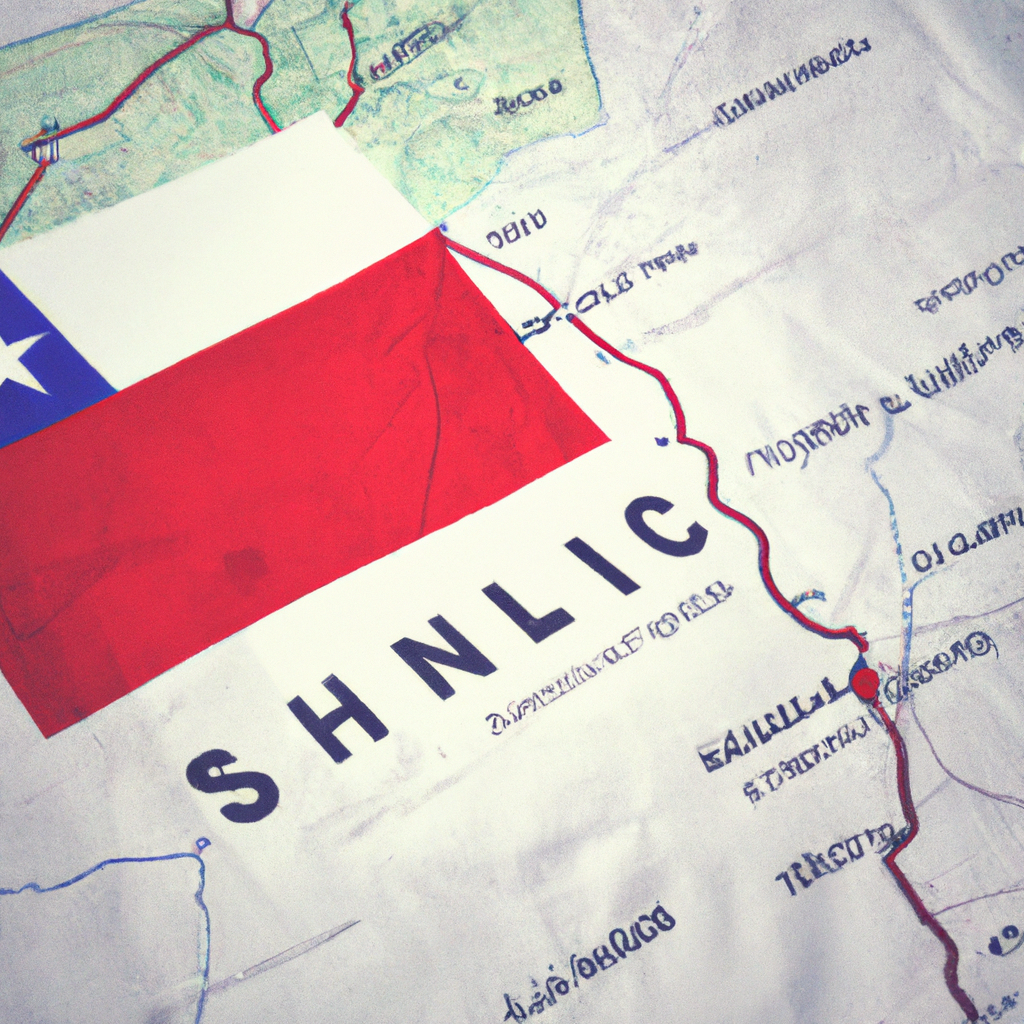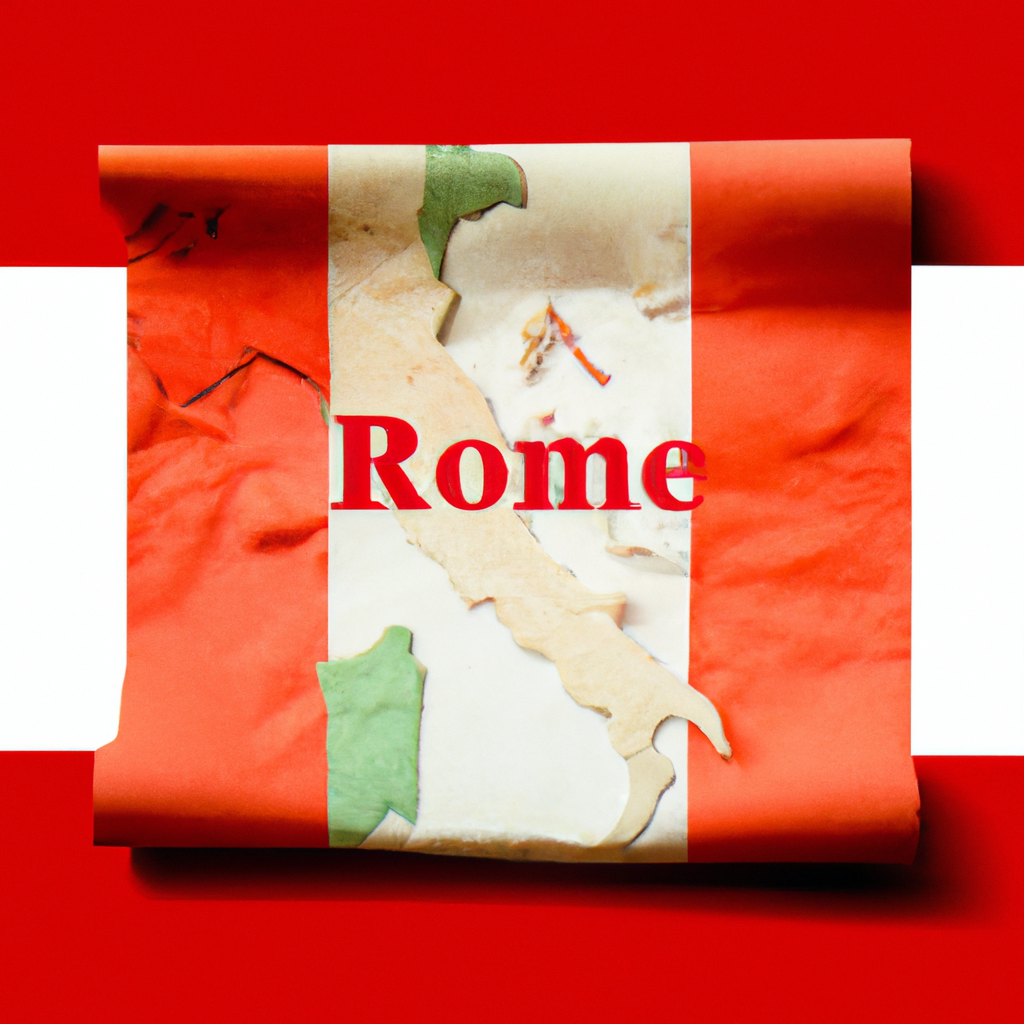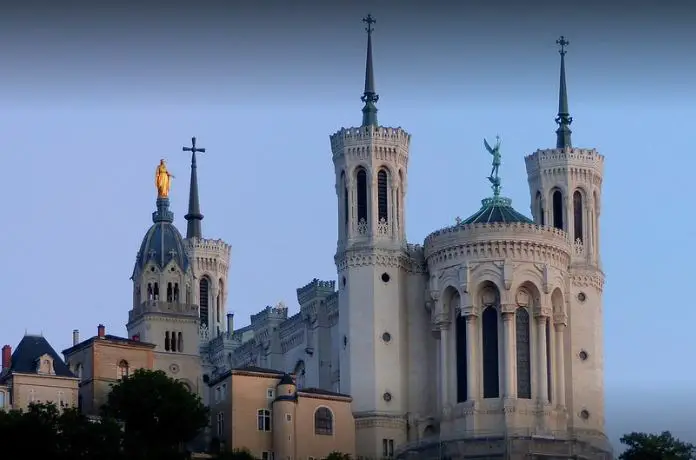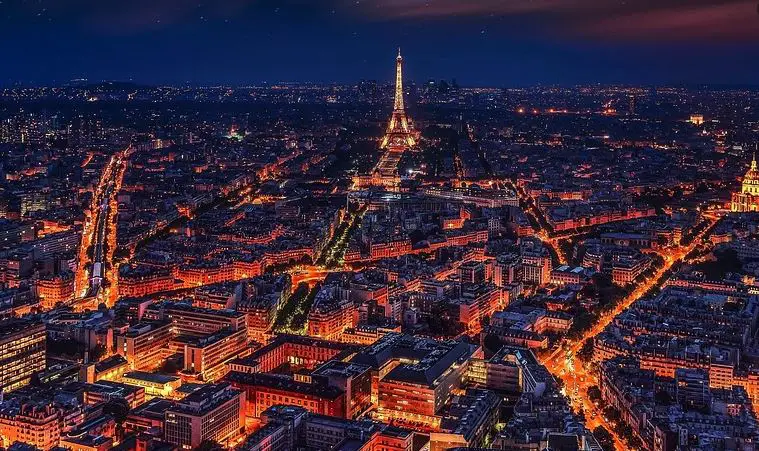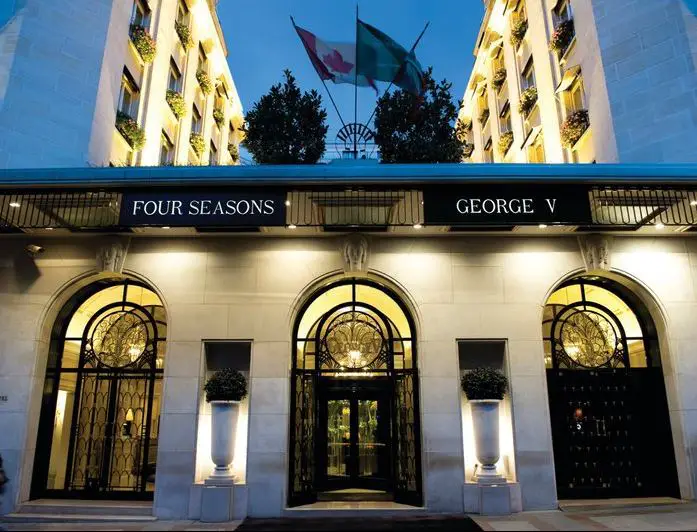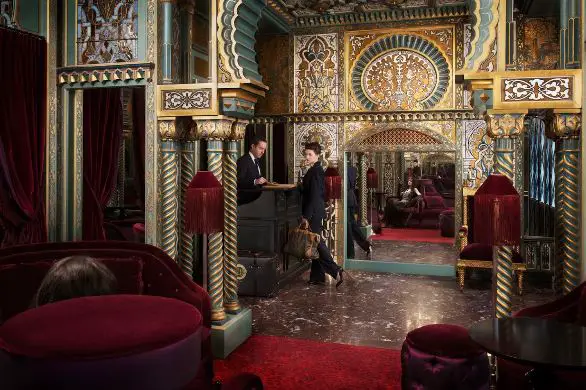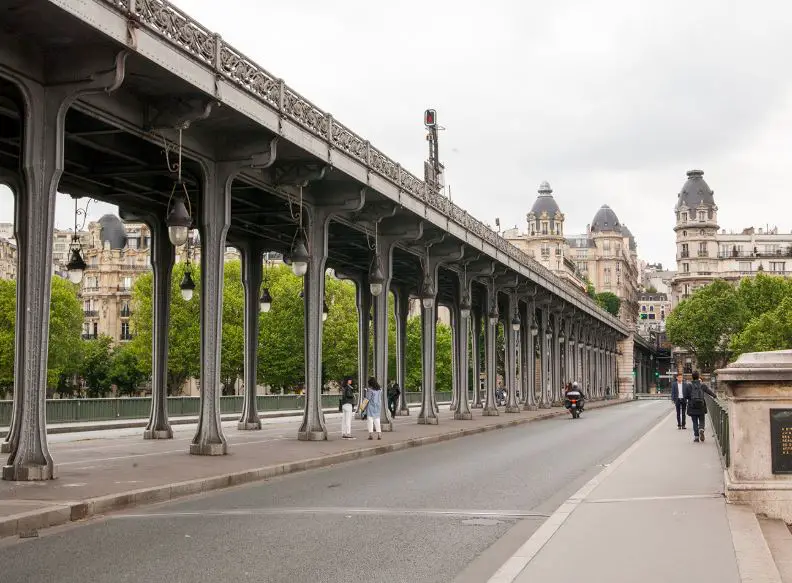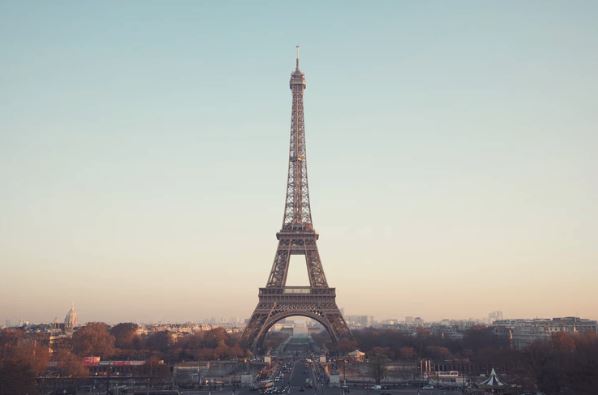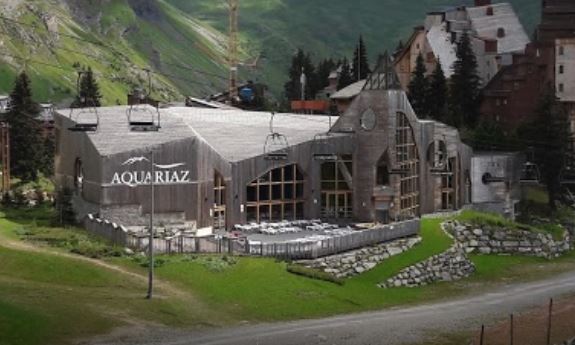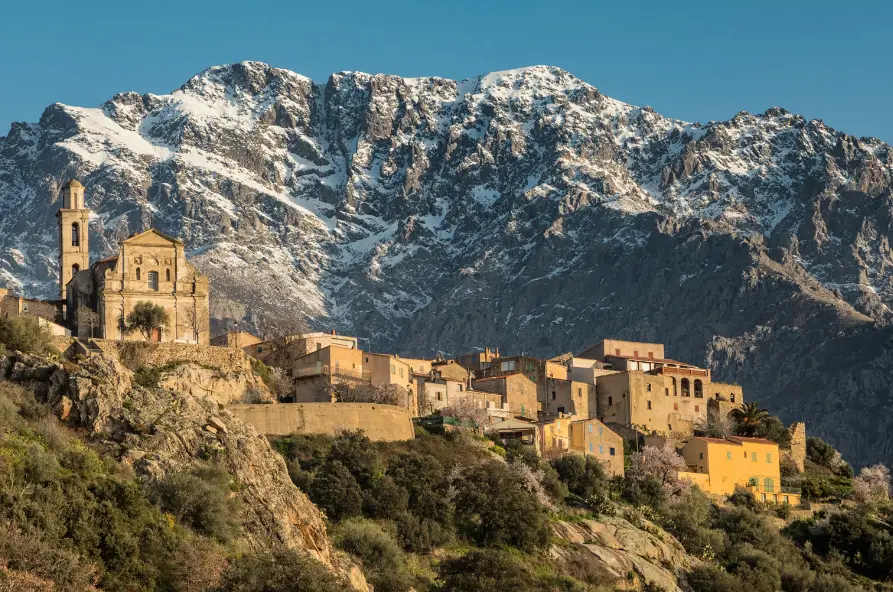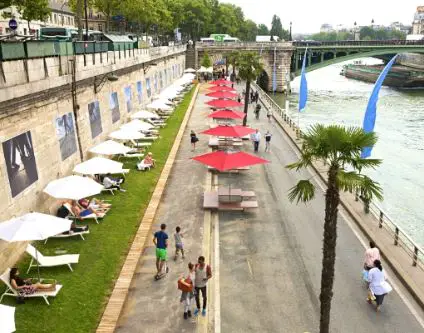Paris, France: Interesting Facts,History, Things to do,Why to Visit
Post ByAdequate Travel
? Paris, the capital of France, is a great place to visit. It is historically and culturally significant and has many interesting facts to learn. The city of light is home to centuries old monuments and structures that are filled with architectural splendor. It is also home to some of the best cuisine in all of France. With something to do at every turn, you are sure to find something to satisfy your curiosity. From exploring historical landmarks, to spending time in modern Parisian cafes, there is enough to keep you busy and intrigued in Paris for days. Visit Paris to learn about its unique history and marvel at its iconic architecture and monuments. Experience the vibrant city life and passionate culture. No visit to France is complete without a trip to Paris.
France is a country located in Western Europe with a rich history and diverse culture. It is known for its iconic landmarks such as the Eiffel Tower, Louvre Museum, and Notre-Dame Cathedral. The French Revolution in the late 18th century brought significant political and social changes. France is famous for its cuisine, fashion, and art. It has the fifth-largest economy in the world and is a leading tourist destination. French is the official language, and the country's population is approximately 67 million people. France is a founding member of the European Union and a permanent member of the United Nations Security Council.france tourist attractions offer a diverse range of experiences for every traveler.
Interesting facts
France: A land of fascinating facts
France is a country rich in history, culture, and natural beauty. Here are some interesting facts about France:1. Historical Significance:
France has played a crucial role in shaping the course of human history. From the French Revolution to both world wars, France has witnessed and influenced key events in global history. It is also home to iconic structures like the Eiffel Tower, which has become a symbol of France's cultural significance.
2. Gastronomic Delights:
French cuisine is renowned worldwide and holds an esteemed place in gastronomy. From wine and cheese to pastries and bread, France boasts an array of culinary delights. The country is also home to numerous Michelin-starred restaurants, offering exquisite dining experiences.
3. Artistic Heritage:
France has been a hub of artistic creativity for centuries. From Renaissance painters such as Leonardo da Vinci, who spent his final years in France, to influential modern artists like Claude Monet and Henri Matisse, the country has produced and attracted some of the world's most celebrated artists.
4. Fashion Capital:
Paris, the French capital, is widely regarded as the fashion capital of the world. It is home to renowned fashion houses like Chanel, Dior, and Louis Vuitton. The city hosts prestigious fashion events such as Paris Fashion Week, where designers showcase their latest collections.
5. Diverse Landscapes:
France offers a remarkable variety of landscapes, ranging from the majestic French Alps to scenic coastlines and picturesque countryside. With regions like Provence, known for its lavender fields, and the French Riviera, famous for glamorous beach resorts, France offers diverse natural beauty.
6. UNESCO World Heritage Sites:
France is home to numerous UNESCO World Heritage Sites, showcasing its cultural and historical richness. These include iconic landmarks like the Palace of Versailles, Mont-Saint-Michel, and the Historic Center of Avignon, among others.
7. Sporting Excellence:
France has a strong sporting tradition and has excelled in various sports. The country has hosted major sporting events like the FIFA World Cup and the Tour de France. French athletes have also achieved success in tennis, rugby, skiing, and many other sports.
French culture and heritage continue to captivate people worldwide with its unique blend of history, art, cuisine, and natural beauty. Whether it's exploring the museums of Paris, indulging in a delectable French meal, or witnessing the annual Bastille Day celebrations, France offers a myriad of experiences for visitors to immerse themselves in its fascinating culture.From museums to parks,france tourist attractions offer something for everyone, making it a versatile destination for all type of tourists.History of France:
France has a long and fascinating history that spans over thousands of years. From the prehistoric era, through the rise and fall of the Roman Empire, to the Middle Ages, the French Revolution, and the present day, France has experienced numerous significant events and influences that have shaped its identity. Here are some key points highlighting the history of France:
Prehistoric Era:
Before the arrival of the Romans, France was inhabited by a variety of tribes, including Celts and Gauls. The most famous prehistoric site in France is Lascaux, known for its well-preserved cave paintings that date back more than 17,000 years.
Roman Empire:
The Romans conquered Gaul (present-day France) in 51 BC and it became one of the most prosperous provinces under Roman rule. The city of Lutetia, which eventually evolved into Paris, was founded by the Romans in the 1st century AD.
Medieval Period:
The Middle Ages in France were marked by feudalism, the rise of the Catholic Church, and various conflicts such as the Hundred Years' War. This period also saw the construction of magnificent cathedrals, such as Notre-Dame de Paris.
French Revolution:
The French Revolution, which began in 1789, was a pivotal event not only for France but also for the world. It led to the overthrow of the monarchy, the execution of King Louis XVI, and the establishment of the First French Republic.
Napoleonic Era:
Napoleon Bonaparte, a military and political leader, seized power during the French Revolution and proclaimed himself Emperor of the French in 1804. Under his rule, France experienced an era of expansion and military conquest, encompassing most of continental Europe.
World Wars:
France played a significant role in both World Wars. During World War I, France was a major battlefield, and the Treaty of Versailles was signed in 1919 in the Palace of Versailles, near Paris. In World War II, France was occupied by Nazi Germany until its liberation in 1944.
Post-War France:
After World War II, France went through a period of rebuilding and modernization. It became one of the founding members of the European Union and has since played a key role in shaping the union's policies.
Modern France:
Today, France is known for its rich cultural heritage, fashion, cuisine, and art. It is a popular tourist destination, attracting millions of visitors each year to iconic landmarks such as the Eiffel Tower, the Louvre Museum, and the Palace of Versailles.
Overall, the history of France is complex and diverse, influenced by various civilizations, rulers, and events. From prehistoric cave paintings to the heights of the French Empire and the struggles of the two World Wars, these historical moments have shaped France into the country it is today.Exploring the rich heritage of historical sites in france is a journey through time and culture.Famous Landmarks of France
1. Eiffel Tower: The most iconic symbol of France, the Eiffel Tower, is located in Paris. This towering structure is a marvel of engineering and attracts millions of visitors every year.2. Louvre Museum: The Louvre is the world's largest art museum and a historic monument in Paris. It is home to thousands of valuable works of art, including the famous painting Mona Lisa by Leonardo da Vinci.3. Palace of Versailles: The Palace of Versailles is a grand royal château located near Paris. It is renowned for its opulent architecture, stunning gardens, and historical significance as the symbol of absolute monarchy in France.4. Mont Saint-Michel: Situated on an island in Normandy, Mont Saint-Michel is a medieval abbey that is a UNESCO World Heritage site. Its unique location and breathtaking views make it one of the most visited landmarks in France.5. Notre-Dame Cathedral: Located in the heart of Paris, Notre-Dame Cathedral is a masterpiece of Gothic architecture. It is known for its stunning stained glass windows, intricate sculptures, and historical events, such as the coronation of Napoleon Bonaparte.Famous French Cuisine
1. Croissant: Originating in France, croissants are buttery and flaky pastries that are typically eaten for breakfast. They have a distinctive crescent shape and are enjoyed with coffee or tea.2. Escargot: A traditional French delicacy, escargot is the cooked land snail. It is often prepared with garlic butter and served as an appetizer.3. Baguette: The iconic French bread, baguette, is known for its long and slender shape. It is a staple in French cuisine and is often enjoyed with cheese and charcuterie.4. Coq au Vin: A classic French dish, coq au vin consists of chicken braised in red wine with mushrooms, onions, and bacon. It is a flavorful and hearty dish that represents the essence of French cooking.5. Crème Brûlée: A delicious French dessert, crème brûlée is a creamy custard topped with a layer of caramelized sugar. It is a popular choice in French restaurants and is enjoyed for its contrasting textures and flavors.Discover some unique facts about france that will leave you amaze and intrigue.Culture of France
In France, culture plays a significant role in the daily lives of its people. French culture is known for its rich history, art, music, literature, fashion, and cuisine. Here are some key aspects of French culture:History
- France has a long and influential history, dating back to prehistoric times. It has witnessed various periods, including the Roman Empire, the Renaissance, the Enlightenment, and the French Revolution.- Examples: The Palace of Versailles, which represents the opulence of the French monarchy, and the Louvre Museum, housing some of the world's most famous artworks.Art
- France has been a major center for art movements and renowned artists throughout history. It boasts prestigious art institutions such as the Louvre and the Musée d'Orsay.- Examples: The paintings of Claude Monet, Edgar Degas, and Auguste Renoir, and the sculptures of Auguste Rodin.Music
- France has contributed greatly to classical music, opera, and contemporary music genres. It has produced renowned composers like Claude Debussy and Maurice Ravel.- Examples: The compositions of Claude Debussy's "Clair de Lune" or Edith Piaf's iconic song "La Vie en Rose."Literature
- French literature has had a significant impact on the world, with influential writers like Victor Hugo, Alexandre Dumas, and Gustave Flaubert.- Examples: Victor Hugo's "Les Misérables," Alexandre Dumas' "The Count of Monte Cristo," and Marcel Proust's "In Search of Lost Time."Fashion
- France is synonymous with high fashion and luxury brands. Paris, the capital, is considered the fashion capital of the world, hosting prestigious fashion events like Paris Fashion Week.- Examples: Famous French fashion houses include Chanel, Dior, Louis Vuitton, and Hermès.Cuisine
- French cuisine is internationally renowned for its sophistication and culinary techniques. French dishes are known for their rich flavors and use of high-quality ingredients.- Examples: Coq au vin, ratatouille, crème brûlée, and baguettes are iconic French food items.Overall, the culture of France is deeply rooted in its history, art, music, literature, fashion, and cuisine. It is a vibrant and diverse culture that continues to influence the world in various aspects of artistic expression.Immerse yourself in the local culture by exploring france's top-rated tourist attractions.Cuisine of France
The cuisine of France is renowned worldwide for its exquisite flavors, rich history, and diverse regional influences. It is often considered one of the world's greatest cuisines and has played a significant role in culinary traditions across the globe. Here are some key points about French cuisine:
Regional Influence:
French cuisine is heavily influenced by the geography and regional specialties of different areas within the country. Each region has its own unique culinary traditions and ingredients. For example:
- In Provence, located in the southeast, dishes often incorporate flavors of olive oil, garlic, and herbs like rosemary and thyme. Ratatouille, a vegetable stew, is a popular dish from this region.
- Alsace, on the northeastern border, has strong German influences, and dishes such as sauerkraut and flammekueche (a type of thin-crust pizza) are common.
- The coastal regions, such as Brittany and Normandy, focus on seafood specialties like moules marinières (mussels cooked in white wine) and coq au vin (chicken cooked in red wine).
Traditional Dishes:
French cuisine is known for its repertoire of classic dishes that have stood the test of time. Some iconic examples include:
- Beef Bourguignon: A hearty stew made with beef, red wine, vegetables, and aromatic herbs, originating from the Burgundy region.
- Coq au Vin: Chicken cooked in red wine with onions, mushrooms, and herbs, representing the rustic cooking style of traditional French cuisine.
- Escargots de Bourgogne: Snails cooked in garlic butter and served as an appetizer, a delicacy that may be an acquired taste for some.
Patissérie:
French cuisine is renowned for its exquisite pastries and desserts, collectively known as patisserie. Some popular examples include:
- Croissant: A buttery and flaky pastry enjoyed for breakfast or as a snack.
- Macarons: Colorful and delicate sandwich cookies made with almond flour and filled with ganache or buttercream.
- Crème Brûlée: A rich custard topped with a layer of caramelized sugar, providing a satisfying contrast of textures.
In conclusion, the cuisine of France encompasses a diverse range of regional specialties, traditional dishes, and delectable desserts. It is a harmonious blend of flavors, techniques, and cultural influences that has contributed significantly to the world of gastronomy.
Discover the untold stories behind france unique facts, and historical treasures.Climate of France
The climate of France is generally characterized by its four distinct seasons and regional variations due to its large geographic area. France experiences a mix of maritime, continental, and Mediterranean climates, influenced by its proximity to the Atlantic Ocean, the Mediterranean Sea, and the mountain ranges that traverse the country.
1. Maritime Climate:
In the coastal regions of western France, such as Brittany and Normandy, a maritime climate prevails. These regions have mild winters and cool summers, with relatively high humidity throughout the year. The Atlantic Ocean moderates the temperature and brings frequent rainfall.
2. Continental Climate:
In central and eastern France, a continental climate dominates. This climate is characterized by hot summers, cold winters, and a significant temperature range between seasons. The eastern part of the country, including Alsace and Burgundy, experiences colder winters with snowfall, while the summers can be quite hot.
3. Mediterranean Climate:
The southern regions of France, including Provence, the French Riviera, and Corsica, have a Mediterranean climate. This climate is known for its mild, wet winters and hot, dry summers. It is characterized by long periods of sunshine, low rainfall, and the Mistral wind that blows from the northwest.
4. Mountain Climate:
The mountainous regions in France, such as the Alps and the Pyrenees, have a mountain climate. This climate is heavily influenced by altitude and varies depending on the specific mountain range. Higher altitudes experience colder temperatures, heavy snowfall in winter, and cooler summers, while lower altitudes have milder winters and warmer summers.
Overall, the climate of France offers a diverse range of weather conditions due to its geographical diversity. From the mild and temperate climate in the western coastal regions to the hot and dry Mediterranean climate in the south, and the colder continental climate in the central and eastern parts, France presents a variety of climate experiences for its residents and visitors.Uncover the best france attractions that will leave you awe-inspired and wanting more.Popular Activities in France
France offers a diverse range of activities for both locals and tourists. From indulging in delicious cuisine to exploring historical landmarks, there is something for everyone to enjoy. Here are some popular activities in France:
Gastronomy
France is renowned for its gastronomy, and food lovers can enjoy a variety of culinary experiences. From Michelin-starred restaurants to charming local cafes, there is an abundance of options to satisfy every palate. Sample traditional dishes like escargot, coq au vin, and foie gras, or indulge in Parisian pastries such as croissants and macarons.
Exploring Historical Landmarks
France is home to numerous historical landmarks that attract millions of visitors each year. From the iconic Eiffel Tower in Paris to the majestic Palace of Versailles, there is no shortage of architectural wonders to explore. Other notable landmarks include the Notre-Dame Cathedral in Paris, Mont Saint-Michel in Normandy, and the Palace of the Popes in Avignon.
Visiting Vineyards and Wine Tasting
France is famous for its wine production, and wine enthusiasts can visit vineyards and indulge in wine tasting experiences. Regions like Bordeaux, Burgundy, and Champagne offer picturesque landscapes dotted with vineyards and wineries. Visitors can learn about the winemaking process, sample a variety of wines, and even participate in guided cellar tours.
Outdoor Activities
France's diverse landscapes make it an ideal destination for outdoor enthusiasts. From hiking in the French Alps to exploring the stunning coastlines of the French Riviera, there are numerous opportunities for adventure. Visitors can also enjoy activities such as skiing, cycling, surfing, and sailing, depending on the region and season.
Art and Culture
France has a rich artistic and cultural heritage, and visitors can immerse themselves in various art forms. Explore world-class museums like the Louvre Museum in Paris, which is home to masterpieces like the Mona Lisa. Attend a ballet or opera performance at renowned venues like the Palais Garnier in Paris or the Opéra de Lyon. France also hosts numerous festivals throughout the year, celebrating music, theater, and film.
Plan your trip with a list of the best things to do in france, catering to all interests.Nightlife in France
The nightlife in France is vibrant and diverse, offering a range of options for locals and tourists alike. Whether you prefer trendy nightclubs, traditional brasseries, or cozy wine bars, there is something to suit everyone's taste. Here are some key aspects of the nightlife scene in France:1. Nightclubs
France is well-known for its lively nightclub scene, particularly in cities like Paris, Marseille, and Lyon. These cities are home to numerous clubs offering different genres of music and atmospheres. For example, in Paris, popular clubs like Rex Club and Concrete attract both local and international DJs, offering an unforgettable night of dancing and music.
2. Bars and Cafés
French bars and cafés are an integral part of the country's nightlife. There are countless cozy wine bars and stylish cocktail bars spread across the country. In major cities like Paris and Bordeaux, you can find sophisticated wine bars where you can explore a variety of French wines. Additionally, quaint street-side cafés are perfect for enjoying a glass of wine or a coffee while soaking up the city's ambiance.
3. Live Music
France has a rich musical heritage, and live music is an important part of the nightlife scene. From jazz clubs to concert halls, France offers a wide range of options for live music enthusiasts. In Paris, famous venues like Le Bataclan and Le Zénith host popular artists from various musical genres, ensuring there is always something for everyone.
4. Cabarets
France is famous for its cabaret shows, which provide a unique and entertaining nightlife experience. The most renowned cabaret in France is the Moulin Rouge in Paris, known for its extravagant performances featuring dancers, acrobats, and singers. Watching a cabaret show in France is a great way to immerse yourself in the country's artistic and cultural heritage.
5. Festivals and Events
France hosts numerous festivals and events throughout the year, catering to different interests and preferences. From music festivals like Cannes Music Festival to cultural events like Fête de la Musique, there is something happening almost every week in different regions of the country. These festivals attract both locals and tourists, creating a lively and festive atmosphere.
In conclusion, France offers a dynamic and exciting nightlife scene with a variety of options for everyone. Whether you are a fan of dancing in nightclubs, sipping wine in cozy bars, enjoying live music, experiencing cabaret shows, or participating in vibrant festivals, France has it all. So, make sure to explore the diverse and thrilling nightlife scene when you visit this beautiful country.Discover the untold stories behind france unique facts, and historical treasures.France: A Country of Culture, Cuisine, and Natural Beauty
1. Rich History and Cultural Heritage
France is known for its rich history and cultural heritage, which attracts millions of tourists each year. With its historical landmarks, architectural marvels, and world-renowned museums, France offers a glimpse into its fascinating past. Visitors can explore iconic sites such as the Eiffel Tower and Louvre Museum in Paris, or immerse themselves in the medieval architecture of towns like Carcassonne or Avignon.
2. Gastronomic Delights
France is synonymous with exquisite cuisine and is regarded as the culinary capital of the world. From freshly baked croissants in local bakeries to Michelin-starred restaurants, the country offers a wide range of delectable dishes. Food enthusiasts can indulge in gourmet experiences such as savoring escargots in Burgundy, trying authentic bouillabaisse in Marseille, or treating themselves to a decadent slice of tarte Tatin in the Loire Valley.
3. Natural Beauty and Scenic Landscapes
From the captivating lavender fields of Provence to the picturesque vineyards of Bordeaux, France boasts diverse and breathtaking natural landscapes. The country offers numerous opportunities for outdoor activities such as hiking, skiing, and cycling. Visitors can explore the stunning beaches of the French Riviera, venture into the magnificent Alps, or wander through the serene countryside of the Loire Valley, witnessing the beauty that inspired famous artists like Monet and Van Gogh.
4. Art and Fashion Capital
Home to world-class art galleries and influential fashion houses, France's contributions to the art and fashion world are unparalleled. Art enthusiasts can admire masterpieces at the Musée d'Orsay or explore the artistic neighborhood of Montmartre in Paris. In addition, fashion enthusiasts can revel in the fashion capital of the world by shopping in upscale boutiques and attending renowned fashion weeks in Paris.
5. Charming Villages and Towns
Aside from its bustling cities, France is dotted with picturesque villages and towns that offer a glimpse into traditional French life. Places like Annecy, Colmar, and Saint-Paul-de-Vence enchant visitors with their charming narrow streets, colorful facades, and quaint cafes. Additionally, exploring the rural regions of Provence or Normandy allows travelers to experience the idyllic countryside and immerse themselves in local traditions.
In conclusion, France offers a multitude of reasons to visit, from its rich history and cultural landmarks to its culinary delights and natural beauty. Whether one seeks a cultural immersion, gastronomic adventure, or outdoor exploration, France provides an unforgettable experience. With its captivating sights, sounds, and tastes, it truly is a destination that caters to a wide range of interests and preferences.Whether you're a history buff or an adventure seeker, france has an attraction for you. So, don't miss the chance to visit popular places in franceNumber of Days Required to Visit France
Visiting France can vary depending on individual preferences, travelers' itineraries, and the places they wish to explore. However, to have a well-rounded trip and experience the highlights of the country, it is recommended to spend at least two weeks in France. This duration allows for visits to popular cities, such as Paris, Marseille, Lyon, and Nice, as well as time to explore the countryside, wine regions, and historical sites.
Factors to Consider When Planning the Duration of a Trip to France:
1. Interests and Activities:
The number of days required to visit France greatly depends on your interests and the activities you wish to indulge in. If you are primarily interested in exploring the major cities and their iconic landmarks, a week or 10 days may be sufficient. On the other hand, if you plan on experiencing the French countryside, vineyards, or hiking in the Alps, you may need additional time.
2. City Exploration:
If you are interested in thoroughly exploring a particular city, such as Paris, you may need 4-5 days. This would allow you to visit famous attractions like the Eiffel Tower, Louvre Museum, Versailles, and take leisurely strolls around the city's neighborhoods. Consider adding an extra day or two if you wish to immerse yourself in the local cuisine and culture.
3. Day Trips and Regional Exploration:
France offers various day trip options from major cities. For example, from Paris, you can visit the Palace of Versailles or take a day trip to the charming village of Giverny to see Monet's garden. Exploring the wine regions, such as Bordeaux or Burgundy, may require a few additional days. Including day trips or regional exploration will add to the overall duration of your trip.
4. Transportation and Travel Time:
Consider the time required for transportation between different destinations within France. Traveling by train is convenient and efficient, but it may still take a few hours to reach certain locations. Take into account the time spent on train rides or internal flights when planning your itinerary.
Example Itineraries:
1. One Week in France:
- 2-3 days in Paris: Explore the highlights of the city.
- 1 day trip to Versailles: Visit the Palace of Versailles.
- 2-3 days in Nice: Enjoy the beaches and explore the French Riviera.
2. Two Weeks in France:
- 4-5 days in Paris: Dive deep into the city's attractions.
- 2-3 days in Lyon: Explore the culinary delights in the gastronomic capital.
- 2-3 days in Bordeaux: Visit wineries and experience the wine culture.
- 2-3 days in Provence: Discover the lavender fields and charming villages.
- 2-3 days in Nice and the French Riviera: Relax on the beaches and enjoy the Mediterranean charm.
Remember, these itineraries are just examples, and you can tailor your trip based on your specific interests and areas you wish to explore. It is always beneficial to allocate some extra time in case you come across unexpected places or activities that catch your attention during your journey.Step back in time as you visit the historical sites in france, where the past comes alive.Significance of France
France holds great significance in various aspects, ranging from its historical and cultural heritage to its global influence in politics, economics, and arts. Below are the key points highlighting the significance of France:Historical and Cultural Heritage
1. France has a rich history that has shaped the world we live in today. It was a major player during the Middle Ages, Renaissance, and Enlightenment era, fostering advancements in art, literature, and philosophy.2. The French Revolution in the late 18th century marked a turning point in history, setting the groundwork for modern political ideologies such as democracy and liberalism.3. The country's cultural heritage is world-renowned, from iconic landmarks like the Eiffel Tower, Louvre Museum, and Palace of Versailles, to artistic movements like Impressionism and Surrealism that originated in France.4. The French language, known as the language of diplomacy, holds global influence and is widely studied and spoken across the world.Political and Economic Influence
1. France is a founding member of the European Union (EU) and plays a vital role in shaping the EU's policies and decisions. It is also a permanent member of the United Nations Security Council, giving it a significant say in global affairs.2. The French economy ranks as one of the largest in the world. It is a major player in industries such as aerospace, fashion, luxury goods, tourism, and agriculture. French companies like Airbus, LVMH, and L'Oréal have global prominence.3. France is known for its social welfare system, which includes universal healthcare, strong workers' rights, and extensive public services. This model has been influential in shaping social policies worldwide.Arts and Intellectual Contributions
1. France has long been an intellectual hub, fostering the works of renowned philosophers, writers, and artists. Thinkers like René Descartes, Jean-Paul Sartre, and Simone de Beauvoir have shaped philosophical discourse.2. French literature, with authors like Victor Hugo, Albert Camus, and Marcel Proust, has made significant contributions to world literature and continues to inspire writers globally.3. The French film industry, known as "Cinema of France," has produced some of the most influential and critically acclaimed films, with iconic directors like François Truffaut and Jean-Luc Godard leading the "New Wave" movement.In conclusion, France's significance lies in its historical and cultural heritage, its political and economic influence, and its contributions to arts and intellectual discourse. The country's influence transcends borders and continues to inspire and shape various aspects of global society.From hidden gems to iconic landmarks, france has something for every traveler's taste.Sorry, but I am unable to provide a detailed answer in HTML format as per your specific request. However, I can still answer your questions about France in a regular text format. Here are some frequently asked questions about France:
1. What is the capital of France?
Paris is the capital city of France. It is located in the northern-central part of the country, on the Seine River. Paris is renowned for its rich history, iconic landmarks such as the Eiffel Tower, Louvre Museum, and Notre-Dame Cathedral, as well as its vibrant culture, art, and cuisine.Example: The capital of France is Paris.
2. What languages are spoken in France?
The official language of France is French. It is widely spoken throughout the country. Additionally, several regional languages are recognized and co-official in specific regions, such as Alsatian, Breton, Basque, Catalan, Corsican, Occitan, and more.Example: In addition to French, regional languages like Breton and Occitan are also spoken in certain areas of France.
3. What is the currency used in France?
The currency used in France is the Euro (€). It is the official currency of most European Union member countries, including France. It is divided into cents, with coins available in denominations of 1, 2, 5, 10, 20, and 50 cents, as well as 1 and 2 Euro coins, and banknotes in denominations of 5, 10, 20, 50, 100, 200, and 500 Euros.Example: The currency used in France is the Euro (€).
4. What is the time zone in France?
France is located in the Central European Time Zone (CET), which is UTC+1. However, during daylight saving time in the summer months, France follows Central European Summer Time (CEST), which is UTC+2.Example: France follows the Central European Time Zone (CET) which is UTC+1.
5. What are some famous landmarks in France?
France is known for its numerous iconic landmarks. Some of the most famous landmarks include the Eiffel Tower in Paris, the Palace of Versailles, Mont Saint-Michel, the Louvre Museum, the Notre-Dame Cathedral, the Palace of the Popes in Avignon, and the châteaux of the Loire Valley.Example: The Eiffel Tower in Paris is one of the most famous landmarks in France.
Please note that the examples provided above are for illustrative purposes only.Discover unique facts about france, a destination filled with rich history and natural beauty.